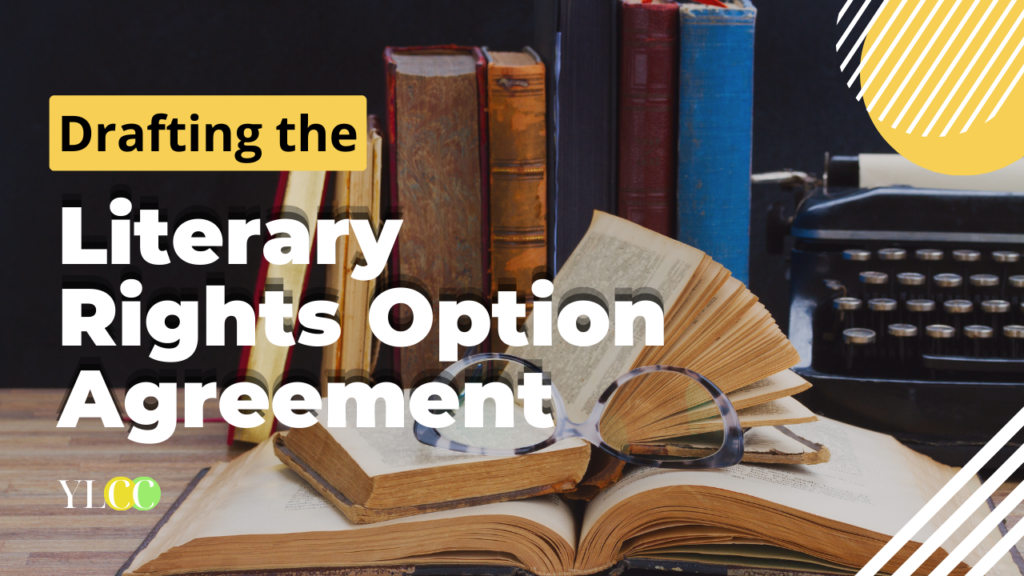
Introduction
A Literary Rights Option Agreement is a contractual arrangement between a content creator, typically an author or screenwriter, and a potential buyer or producer. In this agreement, the content creator grants the buyer an exclusive option to acquire the rights to adapt their literary work into various media formats, such as films or television shows. This exclusive option is time-limited and allows the buyer the opportunity to secure the adaptation rights within a specified period.
Within the agreement, key terms include the option price, which is the amount the buyer pays for the exclusive option, and the option period, which outlines the time frame during which the buyer has the sole right to exercise the option. If the buyer decides to proceed with the adaptation project, a purchase price is often stipulated in the agreement, compensating the content creator for the full acquisition of rights. This type of agreement provides a structured framework for the potential development of literary works into visual or auditory mediums.
Team YLCC brings you a comprehensive guide on how to draft a Literary Rights Option Agreement!
The Key Clauses
A Literary Rights Option Agreement typically includes several key clauses that outline the terms and conditions of the arrangement. While specific clauses can vary, here are the main clauses commonly found in such agreements:
- Grant of Option Clause:
- Scope of Rights: Clearly define the specific rights being granted, such as film, television, streaming, or other media rights.
- Exclusivity: Specify that the option granted is exclusive, preventing the content creator from negotiating with other potential buyers during the option period.
- Territorial Limitations: Determine the geographical areas or territories covered by the option, ensuring clarity on where the adaptation rights apply.
- Option Price and Payment Terms:
- Option Price: Clearly state the amount of money the buyer will pay for the exclusive option. This could be a fixed sum or a negotiated figure based on various factors.
- Payment Schedule: Outline the schedule for payments, including any initial payment upon execution of the agreement and subsequent payments if the option is extended or exercised.
- Payment Currency and Method: Specify the currency in which payments will be made and the preferred method of payment (e.g., wire transfer, check).
- Option Period Clause:
- Duration: Clearly define the length of the option period, providing a specific start and end date.
- Extension Options: Include provisions for extending the option period, if mutually agreed upon, and detail any conditions or additional payments associated with extensions.
- Notice Requirements: Establish the process for the buyer to communicate their intention to extend or exercise the option within a specified timeframe.
- Purchase Price and Closing Conditions:
- Purchase Price: Clearly state the full purchase price that the buyer will pay to acquire the adaptation rights if they decide to exercise the option.
- Closing Conditions: Specify any conditions that must be met for the closing of the deal, such as legal clearances, approvals, or the completion of due diligence.
- Payment Terms: Outline the payment terms for the purchase price, including the timeline and method of payment upon exercising the option.

The Negotiation
Negotiating Literary Rights Option Agreements involves a careful and collaborative process between the content creator (author or screenwriter) and the potential buyer or producer.
Here are some key steps and strategies to consider when negotiating such agreements:
- Understand Your Rights and Value: Before entering negotiations, have a clear understanding of the value of your literary work and the rights you are granting. Consider the potential market and demand for adaptations.
- Research and Benchmark: Research similar deals in the industry to understand common terms, pricing, and structures. This can help you benchmark your negotiations and ensure that you are getting a fair deal.
- Define Clear Terms: Clearly define the scope of the rights being granted, the exclusivity of the option, and any limitations (geographical, time, etc.). Clarity in these terms avoids misunderstandings later on.
- Negotiate Option Price: Negotiate the option price based on the perceived value of your work. Consider factors such as the buyer’s track record, the potential for successful adaptation, and the budget of the production.
- Option Period Negotiation: Carefully consider the length of the option period. Shorter periods may be more favorable for the content creator, allowing them to renegotiate or explore other opportunities sooner.
- Payment Terms: Negotiate payment terms, including the amount of any initial payment upon signing the agreement and subsequent payments if the option is extended or exercised. Discuss the currency, method of payment, and any installment options.
- Include Extension and Renewal Provisions: If possible, include provisions for extending the option period or renewing the agreement. This gives both parties flexibility and can be beneficial if there are delays in the development process.
- Address Purchase Price and Closing Conditions: Clearly define the purchase price and the conditions for closing the deal. Discuss any contingencies or milestones that must be met before the full acquisition of rights.
- Seek Legal Advice: Consult with a legal professional experienced in entertainment law to review and advise on the terms of the agreement. This ensures that the contract protects your interests and complies with relevant laws.
- Maintain a Collaborative Approach: Approach negotiations collaboratively rather than adversarially. Building a positive relationship with the buyer can lead to smoother negotiations and potential future collaborations.
- Be Prepared to Compromise: Understand that negotiations involve give-and-take. Be open to compromise on certain terms while prioritizing those that are most critical to you.
- Document Everything: Ensure that all negotiated terms are documented in the agreement. A well-drafted contract reduces the likelihood of disputes later on.
The Key Suggestions
When dealing with a Literary Rights Option Agreement, several key suggestions can help guide both content creators and potential buyers or producers toward a fair and mutually beneficial arrangement:
- Clarity in Grant of Rights: Clearly define the scope of the rights being granted. Specify the media formats, territories, and any limitations to avoid ambiguity.
- Fair Option Price: Negotiate an option price that reflects the value of the literary work. Consider the market, the potential for adaptation success, and the buyer’s track record.
- Realistic Option Period: Determine a reasonable option period that allows the buyer sufficient time for development while respecting the content creator’s interests. Consider the complexities of adaptation projects.
- Flexible Extension Options: Include provisions for extending the option period if necessary. This flexibility benefits both parties and accommodates unforeseen delays or changes in project timelines.
- Transparent Payment Terms: Clearly outline payment terms, including any initial payment, installment options, and conditions for additional payments upon extension or exercise of the option.
- Purchase Price Considerations: Establish a fair and reasonable purchase price for the full acquisition of rights. Take into account market standards, potential commercial success, and the creative value of the work.
- Negotiate Closing Conditions: Clearly define closing conditions, specifying the milestones or requirements that must be met before the full acquisition of rights. This provides a structured and transparent process.
- Collaborative Negotiation Approach: Make sure there is a collaborative rather than adversarial negotiation environment. Building a positive working relationship can lead to smoother negotiations and potentially pave the way for future collaborations.
- Include Renewal Options: If appropriate, include provisions for renewing the agreement. This can be beneficial for both parties, especially if the adaptation project faces unforeseen delays.
- Clear Communication: Maintain open and clear communication throughout the negotiation process and address any concerns promptly and work together to find mutually agreeable solutions.
Disclaimer: This article is for information purposes only. You are advised to consult a legal professional for drafting such crucial documents for your business.
This article has been written by Team YLCC. For any other queries, reach out to us at: queries.ylcc@gmail.com






